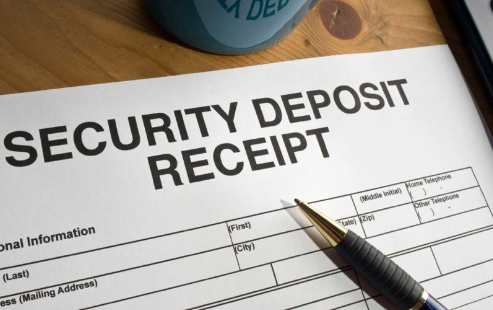Understanding Security Deposit Regulations for Commercial Leases in California

Navigating the intricacies of commercial leases involves a thorough understanding of numerous components, one of the most crucial being the security deposit. This financial assurance serves as a safety net for landlords, providing protection against potential damages or non-payment by tenants. In California, the regulations governing security deposits for commercial leases are distinct from residential leases, offering both parties flexibility but requiring careful consideration to ensure fair and lawful dealings.
The Basics of Security Deposits
A security deposit in a commercial context is typically a pre-paid sum that tenants give to landlords to cover potential damages to the property, unpaid rent, or other obligations under the lease agreement. Unlike residential leases, where the amount and handling of security deposits are tightly regulated, commercial lease agreements offer more negotiation room. This flexibility allows the deposit amount to be tailored to the specifics of the agreement and the property involved.
Legal Limits and Tenant Rights
California law does not impose a statutory limit on the amount a landlord can request as a security deposit for a commercial lease. This amount is often a matter of negotiation and can vary widely depending on the landlord’s assessment of risk, the tenant’s creditworthiness, and the type of commercial property involved. However, it’s essential for both parties to negotiate this term transparently to avoid disputes.
Despite the lack of statutory limits, commercial tenants have specific rights concerning security deposits. These include the right to a detailed invoice and the return of any portion of the deposit not used by the landlord for repairs, unpaid rent, or other agreed-upon expenses. Landlords are required to provide an itemized statement of these expenses if they retain any part of the deposit at the end of the contractterm.
Interest on Security Deposits
California law does not require commercial landlords to pay interest on held security deposits, unlike some requirements for residential leases. This is an area where the terms can significantly vary from one commercial lease agreement in California to another, and tenants may negotiate terms regarding interest if it benefits them financially.
Return of Deposits
The timeframe for returning a security deposit in a commercial contract must be stipulated within the lease agreement itself. While there is no statutory timeframe as in residential leases, most agreements require the landlord to return the deposit within a reasonable period, typically within 30 to 60 days after the contract ends. This allows the landlord adequate time to assess the property for damages and calculate the necessary deductions.
Read more What you should be looking for when looking for a Web Design Agency
Handling Disputes
Disputes over security deposits can arise from misunderstandings about permissible deductions or disagreements over the condition of the property at the contract’s end. To prevent such disputes, both parties should document the property’s condition at the start and end of the contract through detailed checklists and photographic evidence. Furthermore, open communication throughout the contract term can help manage expectations and clarify responsibilities, which in turn reduces the potential for conflicts.
Best Practices for Landlords
Landlords should practice transparency when handling security deposits. This includes providing clear explanations for any deductions and keeping thorough records of all transactions related to the security deposit. Additionally, landlords should ensure that the agreement explicitly states all terms related to the security deposit, including the amount, the use of the deposit, conditions for deductions, and the return process.
Conclusion
Understanding the regulations surrounding security deposits is crucial for anyone involved in commercial real estate in California. Both landlords and tenants should approach these agreements with a clear understanding of their rights and obligations to foster a professional relationship and avoid legal complications. With proper knowledge and negotiation, security deposits can serve their intended purpose without becoming a point of contention, contributing to a successful and mutually beneficial commercial lease. You may download any kinds of legal forms and templates here at this website for free.




